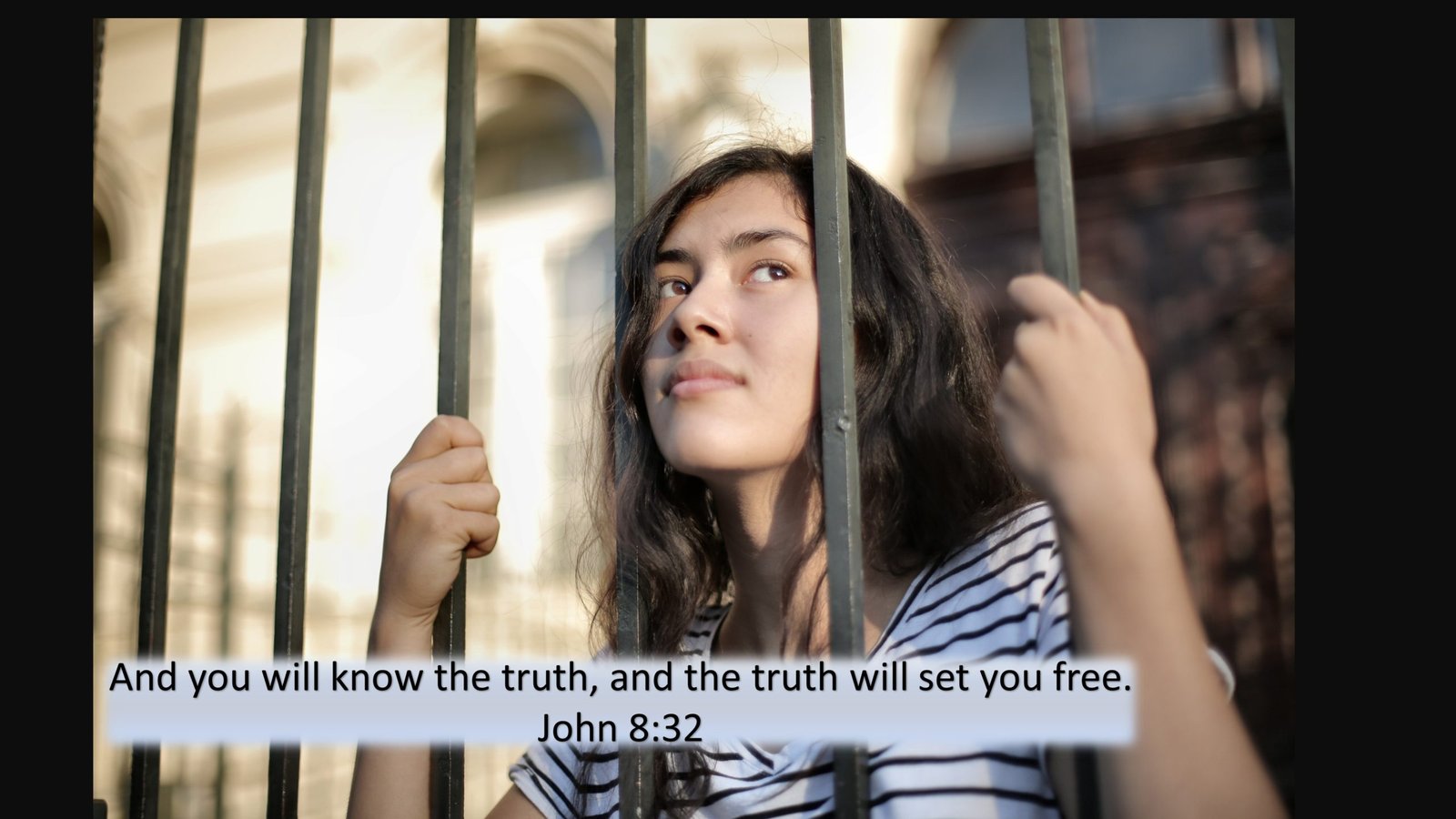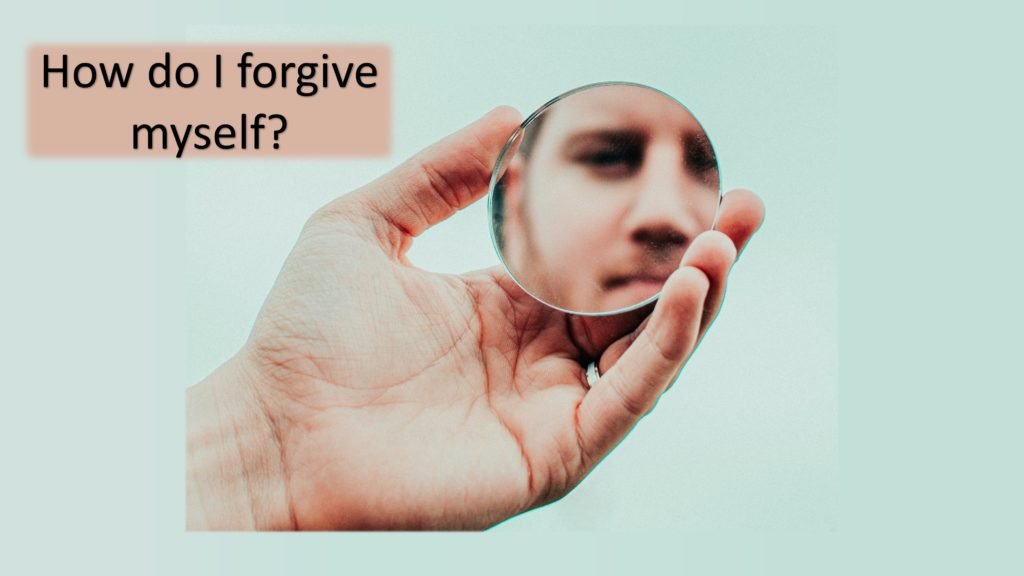The closer that we move to God, the more we realize how terrible our sins really are. However, He sees every one of our sins, visible and invisible, and still extends complete forgiveness. We must humble ourselves to accept that, yes, we are very sinful, and, yes, He DOES love us that much.
How to forgive the worst person ever – me.
When I am trying as hard as I can, the hardest person to forgive, is me. If God forgives me of everything, I can follow His example by forgiving myself so that I can also be free to forgive others. Forgiving myself requires honestly identifying my own sin, humbling acknowledging that I did have a choice and made the wrong one. It requires accepting grace because I don’t deserve forgiveness and accepting mercy because forgiveness is beyond what I can ever earn. This is all done with love that starts with myself, so I am free to love others.
Honesty helps us to see ourselves as God sees us.
Most people try to minimize their sins and pretend that they are not as bad as they are. We tend to excuse our own sin, saying something like, “Sure, I look at p0rn, gossip, and cheat here and there, but I’m not as bad as most people or even myself sometimes.” But what is interesting is that when we see the same offences in someone else, they are horrible.

However, there are no dark areas, shadows or hidden corners with God. He sees everything. He looks through our defenses and cloaks to who we really are. He is described as the light and light makes things visible. We turn on the light when we want to see everything. It is often not pleasant, but it is this pain that brings growth.
Do not try to minimize your offence, it will not really help. When we minimize our offenses, it does not change the offence, it changes our ability to see it. This is one place where blind spots come from. We saw that at one time, but when we did, we decided not to do anything about and eventually, our mind started to ignore it. If we tell it to ignore important things, we become blind to those important things.
Humility helps us realize that we are not as great as we want to be.
Humility is a superpower. It is very difficult to take on. However, when you let go of your pride, God is able to really bless you. Jesus said it in His keynote sermon, “Blessed are the poor in spirit, for theirs is the kingdom of heaven” (Matthew 5:3) and “Blessed are the meek, for they shall inherit the earth” (Matthew 5:5).
Humility allows you to accept yourself as you really are. You have nothing to prove. You are really trying to understand. If everything bad about you is correct, it is fine. You are not stating that you are anything but what you are. God calls out for us to humble ourselves so that we can see who we really are. Then he can bless us. “If my people who are called by my name humble themselves and pray and seek my face and turn from their wicked ways, then I will hear from heaven and will forgive their sin and heal their land” (2 Chronicles 7:14).
Humility reveals what pride hides; humility emboldens what pride causes you to fear; humility frees you from the chains that pride has wrapped around your ankles to keep you from acting. It is humility that allows you to see that you really do need help in your current situation, and you cannot do this by yourself. You are stuck, condemned without a savior.
Remember that what you are seeing was already there, it was just hidden by your pride. But the pride only hides the truth from you. Very often, others can see the truth, they are just not able to help you to see it.
Humility allows us to agree with God about who we are and ask for His forgiveness. It is humility that allows us to really see ourselves and the real impact of our decisions. It is a difficult and painful view, but it is real. This is the view of ourselves that we must have when we come to God. We cannot be hiding who we really are judging the rest of the world. We must be real, confessing openly that we are not even close to who we want to be.
Grace helps us understand that we do not have to be all that.
Grace allows me to be myself and accept that I am not really good enough, and that’s okay. We are in a situation where we must rely on someone else’s goodness as we cannot pay our debt. Paul made it very clear in Ephesians, “For by grace you have been saved through faith. And this is not your own doing; it is the gift of God” (Ephesians 2:8). When we forgive ourselves after He has forgiven us, we are agreeing with God.
We have a debt that we cannot pay and never will be able to pay. The point of forgiving yourself is to understand and accept that. When you do, you can relax into the hands of the One who has agreed to pay everything.
Understanding grace brings freedom from the need to be good enough. There is a tremendous relief to knowing that God has paid the price for me while I was still in sin. He did not wait for me to be good enough or to even ask. He took on the responsibility Himself and we can relax into that. He has completely forgiven us so that we can agree with Him.
Grace allows us to know that it is not our goodness that brings us to God. Grace frees us from the need to pretend that we are good. We are not. We are not close. As Paul wrote, “for all have sinned and fall short of the glory of God, and are justified by his grace as a gift, through the redemption that is in Christ Jesus, (Romans 3:23-24). He provided everything. We are simply grateful for the gift that He has given us. Christians are by definition not good enough for God. That is acknowledged in grace. That makes it possible to agree with God and accept His forgiveness.
Mercy helps us understand that that we will not have to pay when we can’t afford anyway
The instant that I realize that I really am a sinner and that my sin is costly is the minute that I know I desperately need mercy. His mercy is shown in His readiness to forgive us, “If we confess our sins, he is faithful and just to forgive us our sins and to cleanse us from all unrighteousness” (I John 1:9).
Mercy comes from the one with all the power. You show mercy when you have power and only then will you receive it when you need it. “Blessed are the merciful, for they shall receive mercy” (Matthew 5:7).
Mercy is received so that it can be given. You will never have all the power, but there will be plenty of times where you have enough power over someone else to do damage – even if you do not realize it. Mercy is given to us so that it can freely flow from us at every opportunity.
Sometimes mercy is as simple as a smile or a greeting. Other times it looks like forgiving someone, letting something go or welcoming someone who is hard to welcome.
God’s mercy allows us to know that no matter how bad we have been, He will forgive us if we ask. We were under judgement, but God had mercy on us. “And (you) were by nature children of wrath, like the rest of mankind. But God, being rich in mercy, because of the great love with which he loved us, even when we were dead in our trespasses, made us alive together with Christ —by grace you have been saved” (Ephesians 2:3b-5).
Love helps us to forgive ourselves so that we can forgive others
In love, we think of other people more than we think of ourselves. It is hard to really forgive anyone when we are constantly dwelling on their offenses. It is easy to see offences in others, but much more difficult to understand that the same is true for us. When you constantly dwell on your own sins, often only known by you, you will find it difficult to forgive yourself.
The motivation for forgiving others is that God has forgiven us. If He has forgiven us, we can accept His forgiveness and forgive ourselves. “Bearing with one another and, if one has a complaint against another, forgiving each other; as the Lord has forgiven you, so you also must forgive” (Colossians 3:13).
Love teaches us to put ourselves in someone else’s shoes. When we put ourselves in other people’s shoes, we start to realize how insignificant we are. If we are not the center of the world, it is easier to forgive ourselves, realize that we are not everything that we thought we were, and move on.
Love helps us put our self aside to help others. It is love that allows us to move from thinking of ourselves all the time so that we can dwell on the needs of others. If we refuse to forgive ourselves, we will constantly focus on ourselves and not have time or focus to help others.
It is love that helps us to be honest, humble and to show others grace and mercy. When you put someone else before yourself, you can be honest about who you are because the stakes are not as high. You can be humble because you realize you are not the center of the world. You can show grace and mercy because you care about the person that needs your forgiveness. Think of how much easier it is to forgive and understand your own daughter than it is to forgive a complete stranger whom to do not know.
Your Action
Meditate on these truths until they change your feelings about your own sin. If God can forgive you, you must forgive yourself. To refuse to forgive yourself is to put yourself as a judge above God – declaring that your judgement is better than His.


I was more than happy to find this site. I want to to thank you for ones time for this particularly fantastic read!! I definitely savored every little bit of it and I have you book marked to see new things in your site.